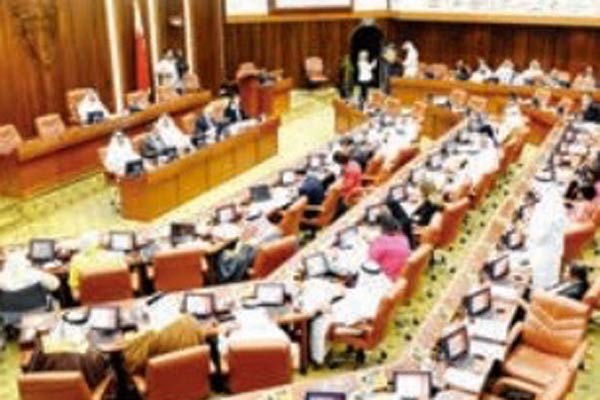
The council in session yesterday
Green light for new rules on IVF use in Bahrain
MANAMA, June 1, 2015
New regulations governing the use of in vitro fertilisation (IVF) in Bahrain have been approved in principle by the Shura Council.
Members yesterday (May 31) voted in favour of a new IVF law, which was originally proposed by parliament and drawn up by the Health Ministry and National Health Regulatory Authority (NHRA), said a report in the Gulf Daily News (GDN), our sister publication.
The law is aimed at regulating IVF, which is a medical technique used to help women become pregnant by fertilising eggs outside the body.
Violations under the law range from the misuse of sperm and eggs to medical negligence and practitioners operating without authorisation - and anyone found committing a violation could be jailed for up to three years and fined a maximum of BD10,000 ($26,511).
It will be policed by a new special joint NHRA-ministerial committee, which will also assess applications for new IVF centres within existing private hospitals - aided by Sharia judges.
NHRA chief executive Dr Baha Eddine Fatiha said the law had to be comprehensive and detailed, because it dealt with important issues related to parenthood.
"The law details Islamic rulings on parenthood and the medical processes which determine the actual father and mother biologically," he said.
"We don't want to end up with parental disputes.
"Issues related to quality of life were also taken into consideration because of two recent cases in which a woman died in the fifth month of her pregnancy and another died three days after giving birth."
BDF Hospital women's medicine and maternity consultant Dr Mooza Ahmed said IVF treatment had been ongoing in Bahrain, largely unregulated, since 1987 - but deaths related to the treatment were now on the increase.
"The rates are increasing because practices are not governed by law," she said.
"We can control treatment locally, but we also have to care for Bahrainis who undergo treatment outside the country and develop complications.
"The issue is not about techniques, it is about quality of life - because we don't want handicapped, blind or sick children who have to be treated in the Intensive Care Unit for between BD100 and BD150 per day."
Health Ministry assistant under-secretary for hospitals Dr Waleed Al Mana'a said the mortality rate related to IVF treatment had reached as high as 10 per cent - or 100 deaths per 1,000 treatments - in the past.
However, this did drop to 0.5pc, before starting to increase again, according to the doctor.
"We can't compare with the GCC or any other country - our mortality rates are high and have reached 0.9pc as things stand due to practices in private clinics," he said.
"The new law will help restore order as it is very detailed about the timing of check-ups, the numbers of ovules (that are allowed to be transplanted) according to age, as well as the setting-up of research, check-up, investigation and punishment units."
More discussions on the law's specifics will continue during the Shura Council's next weekly session on Sunday (June 7). - TradeArabia News Service







